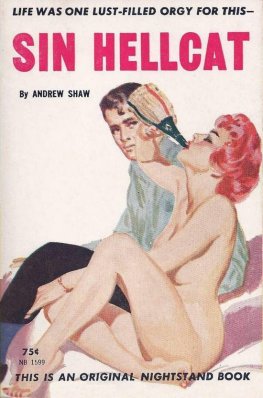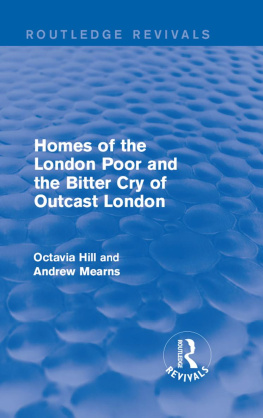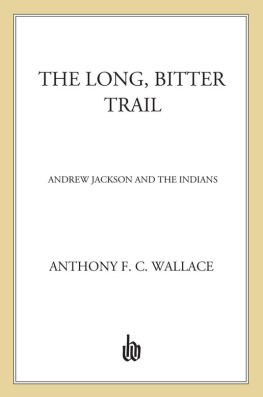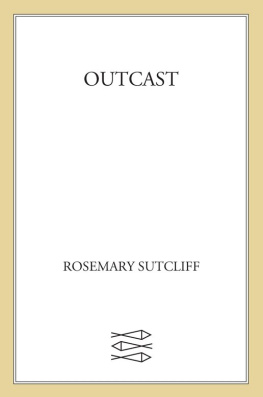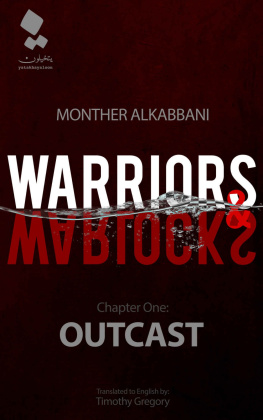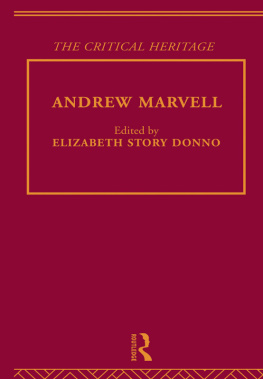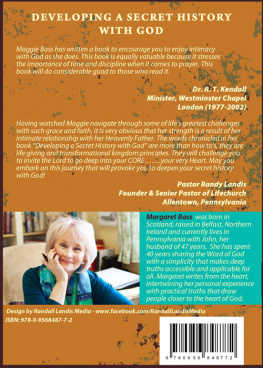THE BITTER CRY
OF
OUTCAST LONDON.
AN INQUIRY INTO
THE CONDITION OF
THE ABJECT POOR.
LONDON:
JAMES CLARKE & CO.,
13, Fleet Street, E.C.
*** We desire thankfully to acknowledge the assistance kindly afforded us in the pursuit of our investigations by the Secretary and Agents of the London City Mission, and also by the Rev. A. G. BROWN of the East London Tabernacle, and his Missionaries.
All communications should be addressed to Rev. ANDREW MEARNS, London Congregational Union, Memorial Hall, Farringdon Street, E.C.
THE BITTER CRY
OF
OUTCAST LONDON.
decorative line
There is no more hopeful sign in the Christian Church of to-day than the increased attention which is being given by it to the poor and outcast classes of society. Of these it has never been wholly neglectful; if it had it would have ceased to be Christian. But it has, as yet, only imperfectly realised and fulfilled its mission to the poor. Until recently it has contented itself with sustaining some outside organizations, which have charged themselves with this special function, or what is worse, has left the matter to individuals or to little bands of Christians having no organization. For the rest it has been satisfied with a superficial and inadequate district visitation, with the more or less indiscriminate distribution of material charities, and with opening a few rooms here and there into which the poorer people have been gathered, and by which a few have been rescued. All this is good in its way and has done good; but by all only the merest edge of the great dark region of poverty, misery, squalor and immorality has been touched. We are not losing sight of the London City Mission, whose agents are everywhere, and whose noble work our investigations have led us to value more than ever, but after all has been done the churches are making the discovery that seething in the very centre of our great cities, concealed by the thinnest crust of civilization and decency, is a vast mass of moral corruption, of heart-breaking misery and absolute godlessness, and that scarcely anything has been done to take into this awful slough the only influences that can purify or remove it.
Whilst we have been building our churches and solacing ourselves with our religion and dreaming that the millennium was coming, the poor have been growing poorer, the wretched more miserable, and the immoral more corrupt; the gulf has been daily widening which separates the lowest classes of the community from our churches and chapels, and from all decency and civilization. It is easy to bring an array of facts which seem to point to the opposite conclusionto speak of the noble army of men and women who penetrate the vilest haunts, carrying with them the blessings of the gospel; of the encouraging reports published by Missions, Reformatories, Refuges, Temperance Societies; of Theatre Services, Midnight Meetings and Special Missions. But what does it all amount to? We are simply living in a fool's paradise if we suppose that all these agencies combined are doing a thousandth part of what needs to be done, a hundredth part of what could be done by the Church of Christ. We must face the facts; and these compel the conviction that THIS TERRIBLE FLOOD OF SIN AND MISERY IS GAINING UPON US . It is rising every day. This statement is made as the result of a long, patient and sober inquiry, undertaken for the purpose of discovering the actual state of the case and the remedial action most likely to be effective. Convinced that it is high time some combined and organized effort was made by all denominations of Christians, though not for denominational purposes, the London Congregational Union have determined to open in several of the lowest and most needy districts of the metropolis, suitable Mission Halls, as a base of operations for evangelistic work. They have accordingly made this diligent search, and some of the results are set forth in the following pages, in the hope that all who have the power may be stimulated to help the Union in the great and difficult enterprise which they have undertaken.
Two cautions it is important to bear in mind. First, the information given does not refer to selected cases. It simply reveals a state of things which is found in house after house, court after court, street after street. Secondly, there has been absolutely no exaggeration. It is a plain recital of plain facts. Indeed, no respectable printer would print, and certainly no decent family would admit even the driest statement of the horrors and infamies discovered in one brief visitation from house to house. So far from making the worst of our facts for the purpose of appealing to emotion, we have been compelled to tone downeverything, and wholly to omit what most needs to be known, or the ears and eyes of our readers would have been insufferably outraged. Yet even this qualified narration must be to every Christian heart a loud and bitter cry, appealing for the help which it is the supreme mission of the Church to supply. It should be further stated that our investigations were made in the summer. The condition of the poor during the winter months must be very much worse.
NON-ATTENDANCE AT WORSHIP.
It is perhaps scarcely necessary to say of the hundreds of thousands who compose the class referred to, that very few attend any place of worship. It is a very tame thing to say, and a very little thing compared with what must follow, but it is needful to a proper statement of our case. Before going to the lower depths, where our investigations were principally carried on, we find in the neighbourhood of Old Ford, in 147 consecutive houses, inhabited for the most part by the respectable working class, 212 families, 118 of which never, under any circumstances, attend a place of worship. Out of 2290 persons living in consecutive houses at Bow-Common, only 88 adults and 47 children ever attend, and as 64 of these are connected with one Mission Hall, only 24 out of the entire number worship elsewhere. One street off Leicester Square contains 246 families, and only 12 of these are ever represented at the house of God. In another street in Pentonville, out of 100 families only 12 persons attend any sanctuary, whilst the number of attendants in one district of St. George's-in-the-East is 39 persons out of 4235. Often the numbers given of those who do attend include such as only go once or twice a year, at some charity distribution, so that our figures are more favourable than the actual facts. Constantly we come across persons who have never been to church or chapel for 20 years, 28 years, more than 30 years; and some persons as old as 64 never remember having been in a place of worship at all. Indeed, with the exception of a very small proportion, the idea of going has never dawned upon these people. And who can wonder? Think of
THE CONDITION IN WHICH THEY LIVE.
We do not say the condition of their homes, for how can those places be called homes, compared with which the lair of a wild beast would be a comfortable and healthy spot? Few who will read these pages have any conception of what these pestilential human rookeries are, where tens of thousands are crowded together amidst horrors which call to mind what we have heard of the middle passage of the slave ship. To get into them you have to penetrate courts reeking with poisonous and malodorous gases arising from accumulations of sewage and refuse scattered in all directions and often flowing beneath your feet; courts, many of them which the sun never penetrates, which are never visited by a breath of fresh air, and which rarely know the virtues of a drop of cleansing water. You have to ascend rotten staircases, which threaten to give way beneath every step, and which, in some places, have already broken down, leaving gaps that imperil the limbs and lives of the unwary. You have to grope your way along dark and filthy passages swarming with vermin. Then, if you are not driven back by the intolerable stench, you may gain admittance to the dens in which these thousands of beings who belong, as much as you, to the race for whom Christ died, herd together. Have you pitied the poor creatures who sleep under railway arches, in carts or casks, or under any shelter which they can find in the open air? You will see that they are to be envied in comparison with those whose lot it is to seek refuge here. Eight feet squarethat is about the average size of very many of these rooms. Walls and ceiling are black with the accretions of filth which have gathered upon them through long years of neglect. It is exuding through cracks in the boards overhead; it is running down the walls; it is everywhere. What goes by the name of a window is half of it stuffed with rags or covered by boards to keep out wind and rain; the rest is so begrimed and obscured that scarcely can light enter or anything be seen outside. Should you have ascended to the attic, where at least some approach to fresh air might be expected to enter from open or broken window, you look out upon the roofs and ledges of lower tenements, and discover that the sickly air which finds its way into the room has to pass over the putrefying carcases of dead cats or birds, or viler abominations still. The buildings are in such miserable repair as to suggest the thought that if the wind could only reach them they would soon be toppling about the heads of their occupants. As to furnitureyou may perchance discover a broken chair, the tottering relics of an old bedstead, or the mere fragment of a table; but more commonly you will find rude substitutes for these things in the shape of rough boards resting upon bricks, an old hamper or box turned upside down, or more frequently still, nothing but rubbish and rags.



